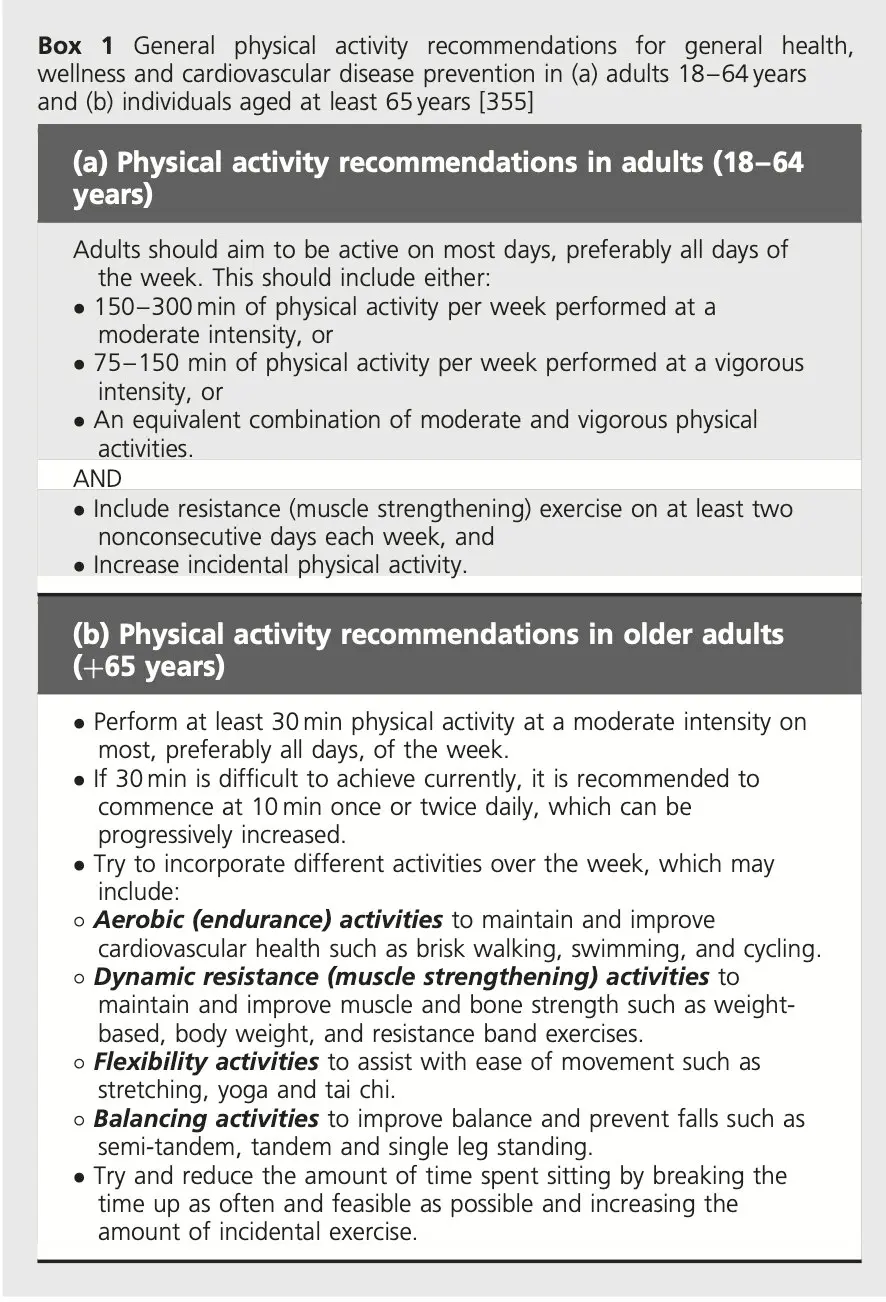- Weight control to maintain appropriate body weight (BMI <25 kg/m2) 1
- weight loss of 10 kg typically results in a decrease in BP of 5 to 20 mm Hg
- Diet: alcohol moderation, sodium reduction, and emphasis on increased consumption of fresh fruits, vegetables, and low-fat dairy products
- Improved sleep 😴
- Insomnia combined with a short sleep duration (<5 hours, but not > 5 hours) is associated with a significantly increased risk of hypertension.2
- Exercise/Increased physical activity 🏃
- “Isometric exercises, which involve contracting muscles to hold the body in position without moving, are best for lowering resting blood pressure, according to results from 270 randomized clinical trials involving 15 827 participants. After isometric exercises, which include activities such as wall squats, combined training tended to reduce blood pressure the most, followed by dynamic resistance training, aerobic exercise, and high-intensity interval training (HIIT).” 3

| Non-pharmacologic Intervention | Dose/Recommendation | Impact on SBP (if HTN) | Impact on SBP (normotensive) |
|---|---|---|---|
| Aerboc exercise | 90-150 min/wk 65%-75% HR reserve | 5/8 mmHg | 2/4 mm/Hg |
| Dynamic Resistance | 90-150 min/wk 50-80% 1 rep max 6 exercises, 3 sets/exercise, 10 reps/set | 4 mmHg | 2 mmHg |
| Isometric Resistance | 4x2 min (hand grip), 1 min rest b/w exercises, 30-40% max voluntary contraction, 3 sessions/wk 8-10 wk | 5 mmHg | 4 mmHg |
| DASH dietary pattern | Diet rich in fruits, veggies, whole grains, and low-fat dairy w/ ↓ content of saturated and total fat | 11 mmHg | 3 mmHg |
| Weight/body fat | Ideal body wt is best goal but at least 1 kg ↓ in body wt for most adults who are overweight | 5 mmHg | 2/3 mmHg |
| Dietary sodium | <1.5 g/d is optimal goal but at least 1 g/d ↓ in most adults | 5/6 mmHg | 2/3 mmHg |
| Dietary potassium | 3.5-5 g/d, preferably by consuming a diet rich in K | 4/5 mmHg | 2 mmHg |
| Alcohol consumption | ↓ EtOH to <2 drinks/day in men and <1 drink/day in women | 4 mmHg | 3 mmHg |
Footnotes
-
Fihn SD, Gardin JM, Abrams J, et al. 2012 ACCF/AHA/ACP/AATS/PCNA/SCAI/STS Guideline for the Diagnosis and Management of Patients With Stable Ischemic Heart Disease. Journal of the American College of Cardiology. 2012;60(24):e44-e164. doi:10.1016/j.jacc.2012.07.013 ↩
-
Thomas SJ, Calhoun D. Sleep, insomnia, and hypertension: current findings and future directions. J Am Soc Hypertens. 2017 Feb;11(2):122-129. doi: 10.1016/j.jash.2016.11.008. Epub 2016 Dec 29. PMID: 28109722. ↩
-
Harris E. Meta-Analysis: Most Effective Exercises for Reducing Blood Pressure. JAMA. Published online August 2, 2023. doi:10.1001/jama.2023.13616 ↩